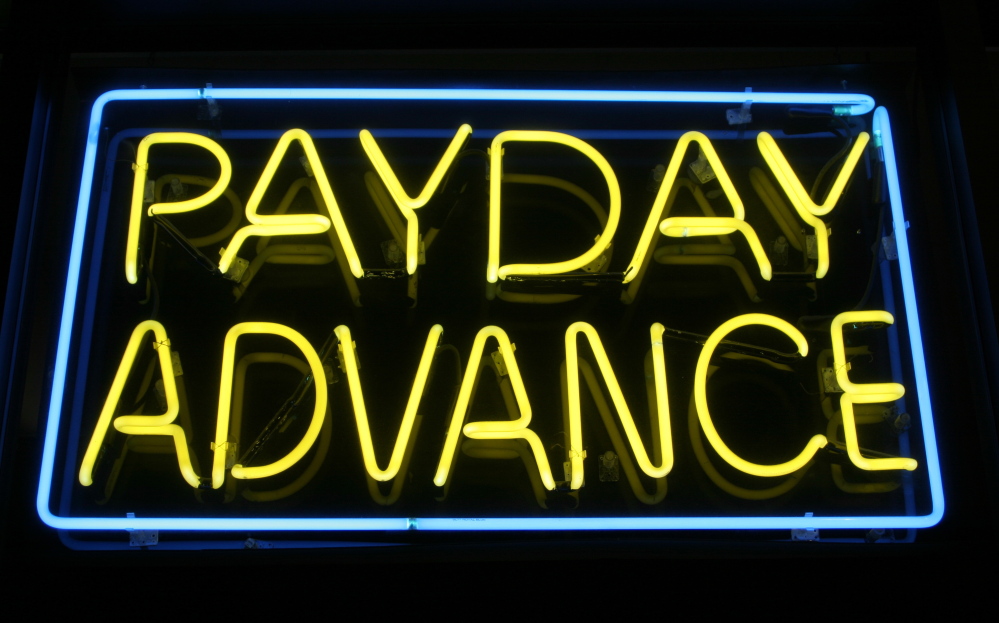Payday loan customers get quick cash on the condition that they repay what they owe out of their next paycheck. Most customers, however, soon have to borrow again in order to make payments on the original loan and still cover everyday costs of living – trapping the borrower in a cycle of high-interest debt.
A watchdog agency is now calling for the first-ever federal limits on payday lenders. As a member of the influential House Financial Services Committee, 2nd District U.S. Rep. Bruce Poliquin is in a prime position to help rein in an industry that’s ensnared thousands of Maine households. But the same companies that he regulates have been generous to the freshman Republican – so it’s his chance to show us that he’s working for his constituents, not for his biggest donors.
About 12 million Americans each year take out payday loans, according to the federal Consumer Financial Protection Bureau, whose 2013 report on payday lending includes a lot of telling statistics. After analyzing 15 million payday loans made in 33 states, the watchdog agency determined that few borrowers can repay the loans.
The average borrower earns about $26,000 a year. The average loan amount is $392. The average lender charges about $15 in interest per $100 borrowed per two weeks (a 391 percent annual percentage rate). And the average time frame for repayment is about 18 days.
When the loan comes due, the customer who can’t repay the full balance has a choice: Pay a fee to extend the due date, or repay the loan and then quickly borrow again to cover other financial obligations. Over 85 percent of all borrowers take out another loan – the average customer takes out about 10 loans a year.
The Consumer Financial Protection Bureau wants to offer payday lenders two options. Either the lender verifies the borrower’s income before they make the loan – in order to ensure that the customer can pay it back – or they limit to two the number of loans that can be taken out in a row before implementing a cooling-off period during which more loans are unavailable.
Although the proposal doesn’t go far enough – a more effective approach would eliminate balloon payments, in which the entire loan is due at once – it is a step in the right direction.
But some of Bruce Poliquin’s most generous donors aren’t likely to back any substantive move toward greater financial services regulation. Of the $700,000-plus that Poliquin raised in the first three months of this year, $133,000 came from companies like Bank of America and Goldman Sachs, according to the Kennebec Journal.
What’s more, the political action committee for Advance America, the nation’s biggest payday lender, gave the congressman $1,000. The company isn’t even licensed to do business in Maine (which hasn’t stopped it from trying, as shown by complaints to the state Bureau of Consumer Credit Protection).
And as the Kennebec Journal noted, Advance America has paid millions to settle allegations of illegal lending practices, such as providing payday loans at rates as high as 368 percent in Pennsylvania – which caps small loan rates at about 24 percent.
When Bruce Poliquin was named to the House Financial Services Committee, he declared that one of the duties of government is “to protect our consumers during their everyday lives.” Now that the government is poised to put more consumer protections in place, Poliquin should be held accountable for putting these words into action.
Copy the Story LinkSend questions/comments to the editors.



Success. Please wait for the page to reload. If the page does not reload within 5 seconds, please refresh the page.
Enter your email and password to access comments.
Hi, to comment on stories you must . This profile is in addition to your subscription and website login.
Already have a commenting profile? .
Invalid username/password.
Please check your email to confirm and complete your registration.
Only subscribers are eligible to post comments. Please subscribe or login first for digital access. Here’s why.
Use the form below to reset your password. When you've submitted your account email, we will send an email with a reset code.